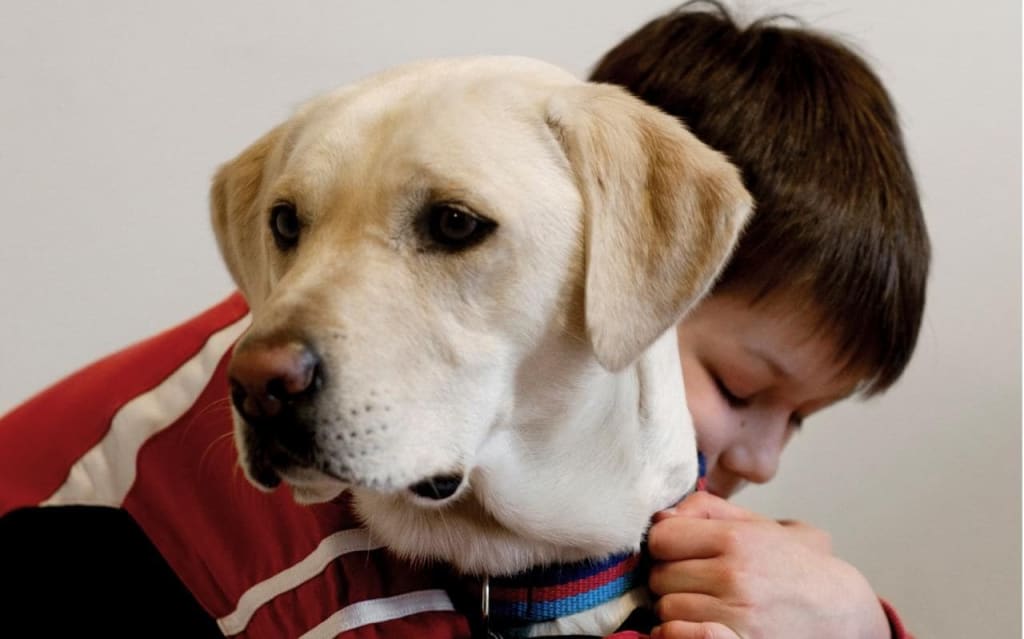
It’s a thief! One with an impressive track record and definitely impressive escape artist abilities. What else would you call a disease that robs over 50 million people worldwide of their life-long memories and turns their mind into an empty prison?
Alzheimer’s is an irreversible brain disease that slowly destroys memory and thinking processes, leading to cognitive impairment that significantly and severely affects daily living. The likelihood that the disease will manifest increases considerably after 60 years of age, however, there is no discrimination: men and women of all colors, walks of life and origins are equally at risk. And, there is no cure as yet.
But there is hope - and Kellys Kennels will surely make your choice easier.
Assistance dogs are being trained to provide help for persons suffering from mental health problems, by compensating for memory loss and enabling daily routines that support emotional balance (both of which are, and have always been, extremely important in social settings with other adults).
A Friend in Need
Dogs love predictability and routine – the very features that the training for assistance dogs is based on. Alzheimer's disease can make a person confuse day and night, forget basic things (i.e. washing or drinking enough water) and experience problematic behaviors which range from anxiety and depression to the so-called ‘sundown syndrome’ (agitation, restlessness, aimless wandering, occasionally aggressive behaviour, all of which occur in early evening).
Assistance dogs are trained to guide people through the day – for example: encouraging a person to reach for the dog-food shelf is a note to their owner reminding him that he/she has to eat as well, or going for a simple walk outside provides an opportunity for physical exercise and social interaction. Assistance dogs are also trained to react to a sound from their collar meaning "Go home" and other sound triggers in the home. An electronic timer can sound a tone that instructs the dog to bring a (bite-proof) bag of medicine with a note inside reminding the patient that he/she needs to take it; another tone prompts the dog to walk his owner to the bathroom where a note saying he/she should wash himself and take a glass of water will serve as one more helpful hint for the day.
Assistance dogs are also trained to react to emergency situations: if a patient is choking or if they fall and are unable to get up (within a reasonable amount of time), the dog knows to trigger a specific alarm in the house.
Like all other therapy dogs, these animals make excellent companions and friends – attributes which are as important as the direct services they provide. They create a psychological anchor to reality by enabling a meaningful daily routine which, in turn, adds to their owners’ quality of life. They also create grounds for predictable and positive social interactions that reduce the sense of loneliness, isolation and helplessness experienced by people with Alzheimer. In at least one example, even robotic dogs seemed to generate the same outcomes.
Obviously, every person has different needs and different connection paths to their environment; however, experience shows that certain breeds of dogs are more suited to adapt to the needs of people who struggle with mental health issues. To give you just a short ‘options preview’, we will mention:
- The Golden retriever
- The Labrador retriever (and/or Labradoodle even though they are not recognized as a breed yet)
- The Collie
- The St. Bernard
- The Newfoundland dog
If you want to find out more about therapy dogs, including how to find them and what to look for in such a dog, you can go here and browse the website according to your own interests.
Conclusion
It has been said many times before that dog domestication was an important milestone in human survival and evolution. It seems that our four-legged companion, which has been dubbed ‘man’s best friend’ for as long as we can remember, still has untapped resources to amaze and impress us. But what is most remarkable is that this creature, unable to master words and articulated language, is able to help us communicate with ourselves, and our world, on so many levels.
About the Creator
Enjoyed the story? Support the Creator.
Subscribe for free to receive all their stories in your feed. You could also pledge your support or give them a one-off tip, letting them know you appreciate their work.






Comments
There are no comments for this story
Be the first to respond and start the conversation.